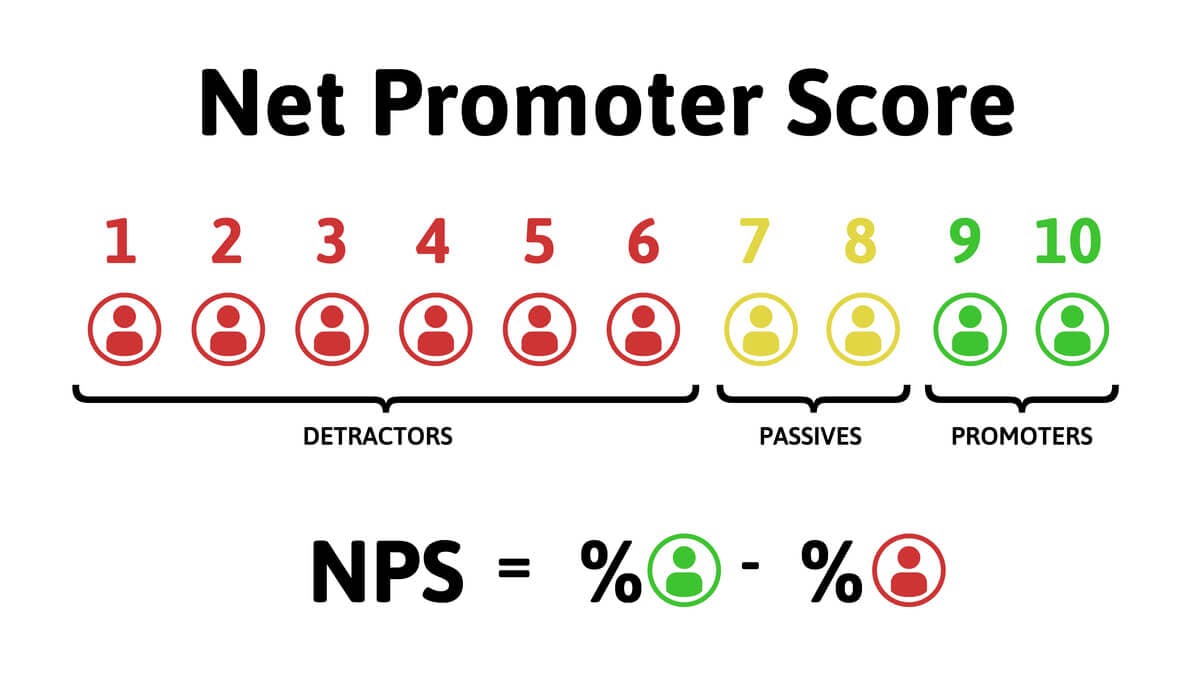“On a scale of 0-10 how likely are you to recommend us to your friends or family?” You’ve probably been asked this question plenty of time in the past, not knowing that it has a deeper meaning.
NPS stands for net promoter score and is a metric used in measuring the customer experience and their overall loyalty to a company.
Customers are separated into 3 different types, namely promoter, passive and detractor. Promoter customers are individuals who are the company’s most enthusiastic and loyal fans, they are the most likely to act as brand ambassadors and promote the company to their contacts.
Passives are individuals who are satisfied with the product/service however aren’t actively promoting a brand. Whilst they are unlikely to leave negative reviews, they can be easily tempted if a competitor offers an attractive alternative.
Detractors are customers who are dissatisfied and unhappy with the company. They are unlikely to recommend the brand to others and can spread negative word of mouth reviews to discourage other individuals from using the business’s products and services.

How is the NPS score calculated?
NPS is calculated by subtracting the percentage of detractors from the promoters with the score ranging from -100 to 100 with a higher, positive score being the ideal.
What is a good NPS score?
Any score above ‘0’ is seen as ‘good’ as this means the business has more promoters than detractors. Above 20 is ‘favourable’, above 50 is ‘excellent’ and above 70 is ‘world class’. Generally, a negative NPS score is viewed as unfavourable but these scores shouldn’t be viewed in isolation and should be bench marked with industry averages.
To put into context, the NPS for global companies Amazon, Google and Airbnb are 54, 53 and 44 respectively. Our current NPS stands at 32 with the industry average sitting at a low of -35.
Want more insights into the world of property management and real estate?
Subscribe to our FREE monthly newsletter for the best property content on the internet!
Disclaimer: The views, information, or opinions expressed in this blog post are for general information purposes only and should not be relied upon. We have not taken into account specific situations, facts or circumstances, and no part of this blog post constitutes personal financial, legal, or tax advice to you. You should seek tax advice from your accountant, specific to your situation.
.jpg?ixlib=gatsbyFP&auto=compress%2Cformat&fit=max&rect=0%2C0%2C6720%2C4479&w=2000&h=1333)



.png?ixlib=gatsbyFP&auto=compress%2Cformat&fit=max&rect=0%2C0%2C4000%2C1400&w=700&h=245)

